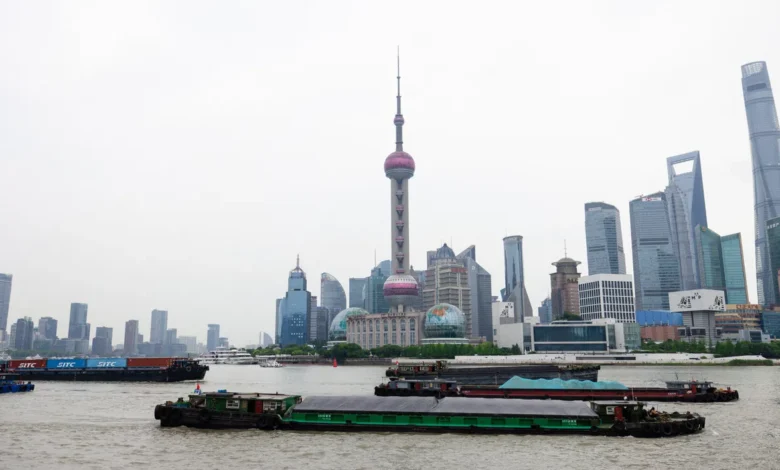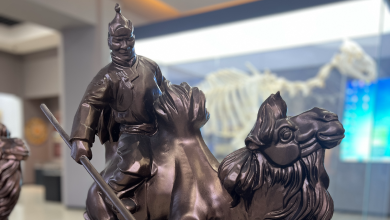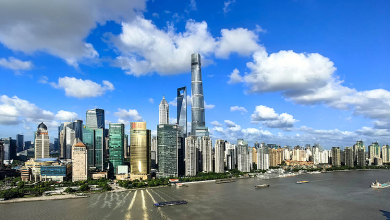Chinese firms jostle with US peers for sliver of Gulf oil riches

A WAVE of Chinese banks, asset managers and hedge funds are ramping up in the Middle East, jostling with Wall Street firms who are making their own expansion push in a region flush with oil wealth.
Those efforts were on show in recent months, when a string of executives from China’s US$1.35 trillion sovereign wealth fund made their way to the Middle East in the hope of finding a way to invest in the region.
Following a series of meetings with the region’s biggest alternative asset manager, the firms unveiled a first-of-its-kind US$1 billion private equity fund and China Investment vowed to take an unusually hands-on role in scouting for deal targets.
That agreement comes at a time when Beijing’s soft power has been on the increase in the Middle East – in recent days President Xi Jinping met Gulf leaders at a forum held in the Asian country. All that’s happening even as the US deepens its own Middle East push, while also scrutinising growing ties between the region and China.
“The Gulf region was not always on the radar in the past decades for Chinese investors because they had really a lot of businesses going on with Europe and the US,” said China Merchants Bank International’s Chief Representative for the Middle East, Stephanie Holzhaider. The Middle East will see “big development for the next decade or two. That’s why Chinese companies are deploying with full force to set up their branches or offices to try to deepen presence in the market”. The firm recently set up an outpost in Dubai.
One big reason for the change is a slowing local economy in China, where firms are battling rising competition and waning consumption. The slump has been particularly acute in fields such as technology and construction.
GET BT IN YOUR INBOX DAILY

Start and end each day with the latest news stories and analyses delivered straight to your inbox.
Meanwhile, Middle Eastern governments are ploughing in billions of US dollars to upgrade their infrastructure, offering Chinese companies and financial institutions new avenues for growth.
Full operations
Analysts at HSBC predict that annual two-way foreign direct investment flows between Asia and the Middle East will reach US$36 billion by 2035 from around US$21 billion last year.
Chinese banks are now considering full service operations in the Gulf, rather than the small branches they have traditionally had. China Merchants Bank International started operations in Dubai’s financial centre in April and its parent CMB Group will soon have both commercial and investment banking operations in the region.
Beijing’s state-owned China International Capital Corporation (CICC) has also ramped up in the Middle East in recent months, and hopes to give Middle Eastern investors more insight into China to encourage investment flows to the Asian country.
“We know that understanding China in a granular way is not easy to achieve without a presence in China or access to true China specialist institutions,” said Richad Soundardjee, regional managing director at CICC. “This has kept a number of investors in this region on the fence about adding China to their geographical mix.”
Others building up a presence in the Gulf include Noah Holdings, one of China’s top wealth managers, which expects to get a business license in Dubai by the end of this year. Hong Kong’s Landmark Family Office is planning to set up an office in the emirate in the coming months.
Meanwhile, Infini Capital recently became the first Asian hedge fund to set up in the United Arab Emirates, joining peers from Europe and the US that have flocked to the country over the past few years.
Investment destinations
To be sure, the US continues to be among the most important investment destinations for the Middle East. Still, the region has been inching deeper into Bejing’s orbit – the UAE and Saudi Arabia are now part of the Brics group.
The growing ties have already raised concerns in the US. Authorities there have boosted scrutiny of Middle Eastern wealth funds as part of a broader pushback on entities perceived to have close ties with Beijing, Bloomberg News reported last year.
Middle Eastern governments want “freedom to select their trade, tech, and security partners”, said analysts at Spain-based Sovereign Wealth Research at the IE University’s Center for the Governance of Change. But the Chinese expansion into the Gulf is at an early stage and the impact on US firms remains to be seen, they said.
Indeed, some of the sectors where Chinese firms are looking to invest in the Middle East are particularly sensitive from Washington’s perspective. Saudi Arabia and other Gulf countries like the United Arab Emirates have long been some of Washington’s closest partners in the region, particularly in defence.
US officials have baulked at the possibility of the Gulf nations forging closer ties with China in high-end technology and artificial intelligence. Middle East firms have taken steps to assuage those fears: For instance, Abu Dhabi’s top AI firm G42 – backed by an influential royal – agreed to divest from China and pivot to American technology. The Emirati firm has since inked at least two deals with Microsoft.
Still, Gulf states are prioritising relationships that are likely to serve their national economic visions. Attracting foreign direct investment is a key priority for Saudi Arabia and officials in Riyadh describe China as an indispensable partner for Vision 2030 – Crown Prince Mohammed bin Salman’s multi-trillion US-dollar economic and social transformation plan.
In recent days, Saudi Arabia has agreed to invest US$2 billion in Lenovo Group, with the Chinese computer maker pledging to open a manufacturing facility and establish regional headquarters in Saudi Arabia in return.
For Gulf countries, partnering with Chinese firms who can bring know-how and technology in both traditional and new economy sectors, “creates a clear win-win opportunity for both sides”, said CICC’s Soundarjee. BLOOMBERG





